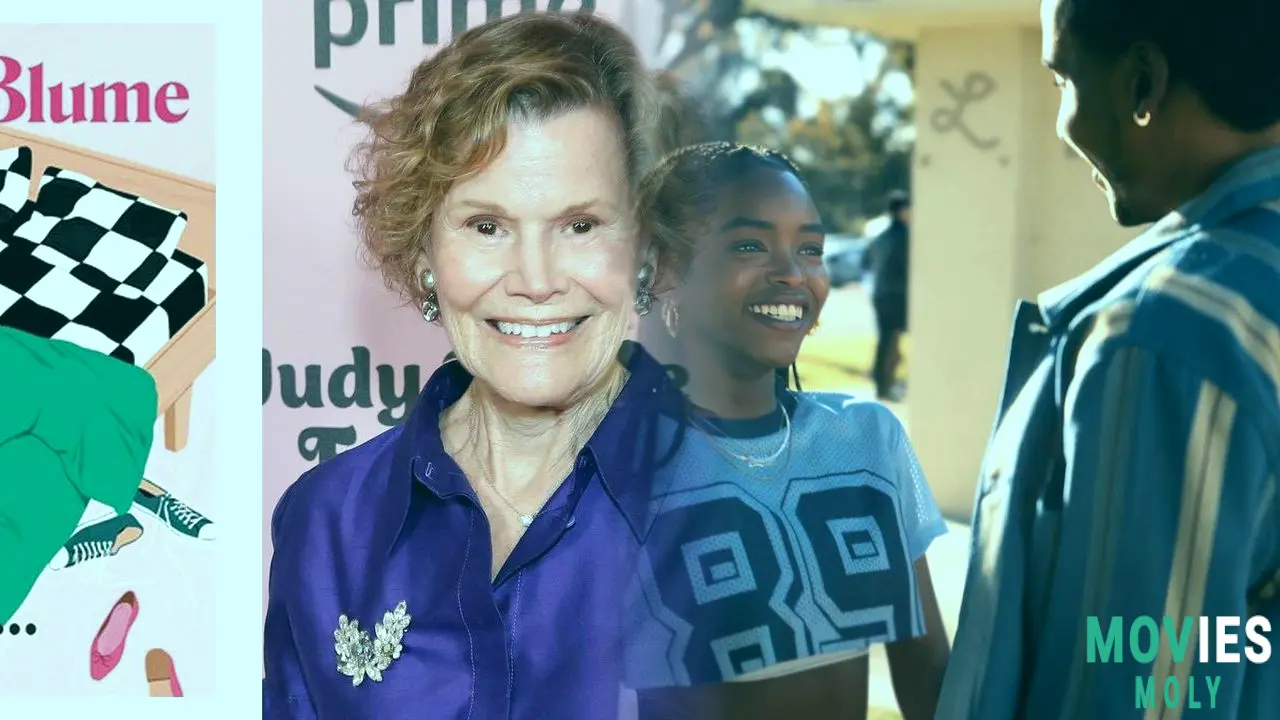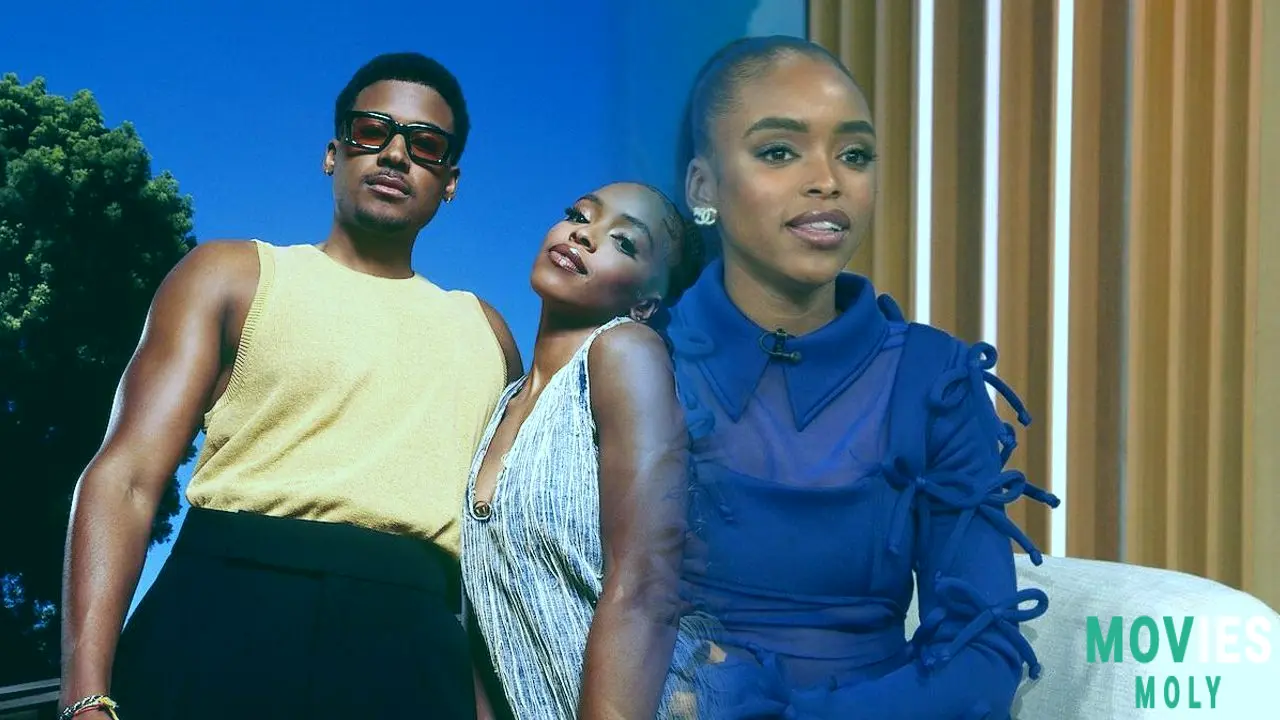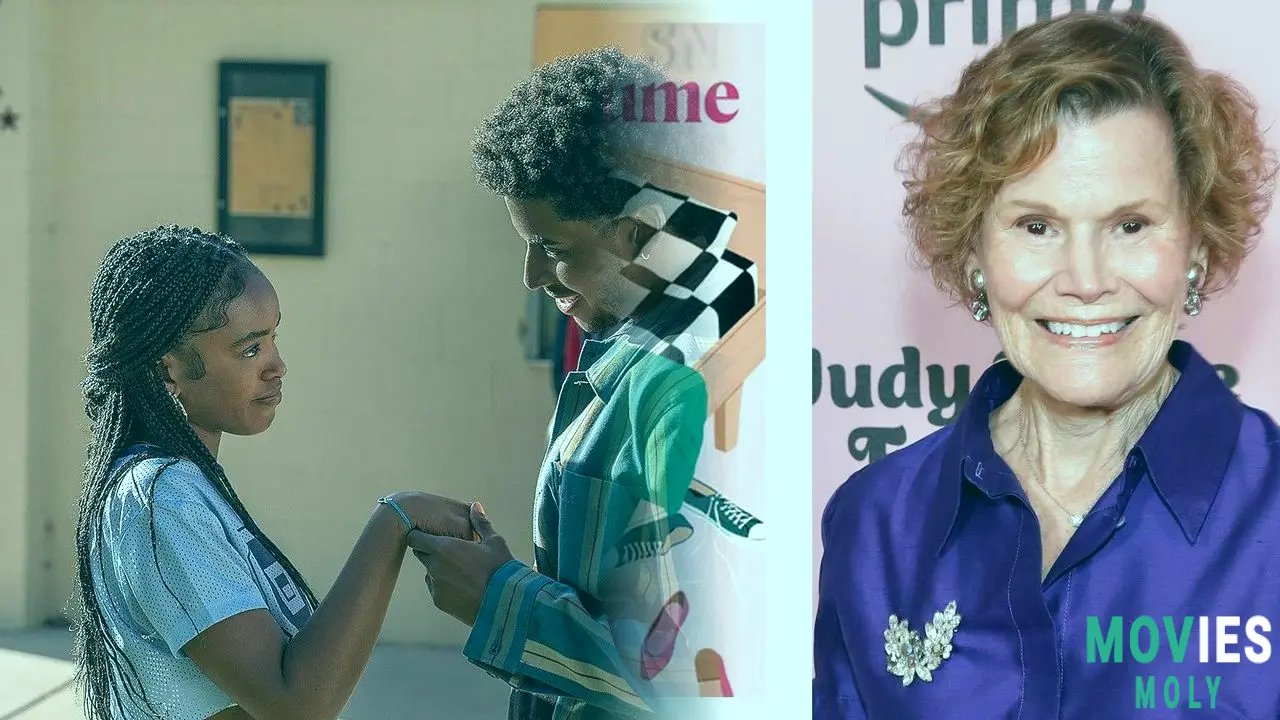Netflix’s Forever isn’t just a teen romance. It’s a cultural update wrapped in a love story, and it somehow manages to be both nostalgic and urgently relevant. Inspired by Judy Blume’s 1975 novel Forever..., the eight-episode series drops the ellipsis and adds a whole new layer of meaning.
Created by Mara Brock Akil, Forever takes Blume’s controversial coming-of-age tale about teenage sexuality and desire and reworks it into something that speaks directly to today’s audience — especially Black youth. The result is a show that doesn’t just adapt a book, but reinterprets it through a modern lens.
A New Setting Brings Fresh Energy To A Classic StoryWhere Blume’s original story was set in the ’70s suburbs of New Jersey, Forever moves to Los Angeles in 2018. The main characters, Keisha (Lovie Simone) and Justin (Michael Cooper Jr.), are both Black teens navigating love, sex, and ambition in a world that’s watching them closely — and judging them even more.
Keisha is a track star with a tight grip on her future. Justin is a talented basketball player stuck in a hyper-competitive space, both at school and at home. Their relationship sparks at a New Year’s Eve party, but what begins as teenage romance quickly unfolds into a complex exploration of identity, class, gender, and emotional growth.
The Showmaster Stroke: Making Blume’s Story Unapologetically Black

Mara Brock Akil, known for Girlfriends and The Game, doesn’t just cast Black leads into a story that was originally white — she centers their experience. Forever is filled with moments that speak specifically to Black audiences, without pausing to explain them. And that’s what makes it hit so differently.
Justin’s parents, Dawn (Karen Pittman) and Eric (Wood Harris), are characters in their own right. Their parental instincts, especially in the shadow of tragedies like Trayvon Martin, reflect a reality that’s rarely portrayed with this much nuance. They warn Justin not only about the dangers of the world, but about how to navigate it safely as a Black man. Their rules are strict because the stakes are life and death.
There’s a scene early on where Eric lays down three dating rules for Justin — and the delivery is as real as it is resonant. It's a moment that reframes typical parental advice through the lens of racial survival.
Keisha And Justin: A Love Story That Refuses To Be Simple

What separates Forever from most teen dramas is how authentic its leads feel. Cooper Jr. and Simone don’t just play roles — they inhabit them. Justin’s "word vomit" of emotion contrasts with Keisha’s guarded determination. Their chemistry grows naturally, awkwardly, and messily, just like real first love.
Keisha is carrying a secret. Justin is searching for himself. And neither of them knows what they're really getting into. The show lets their relationship breathe — into the comfort, the discomfort, and the inevitable growth. It never glamorizes teen love, but it also never underestimates its power.
Sex, Agency, And The Modern Teen Experience

Blume’s novel was controversial in part because it openly discussed teenage sex. Forever picks up that baton and runs with it — but in a way that feels evolved, not exploitative. There’s a scene with a condom and a cucumber that’s played for humor, but also for honesty. Parents aren’t clueless, teens aren’t secretive, and sex isn’t always a big deal — but it’s never ignored.
Keisha’s experience with sexual shaming after a video of her ex posts goes into uncomfortable territory — and handles it with surprising maturity. The show never talks down to its audience. It trusts teens to understand what consent, reputation, and digital violence mean in 2024.
Why Forever Isn’t Just For Teens — And Why That Matters
One of the most striking things about Forever is how deeply it resonates with anyone who’s ever been a teenager — but especially with those who never saw themselves in Judy Blume’s pages. It’s about coming of age, but also coming into race, class, and gender awareness. It’s about loving someone when you don’t even love yourself yet.
This isn’t a nostalgic trip for grown-ups who read Blume in middle school. It’s a reintroduction to a cultural moment through the eyes of Keisha and Justin — and it’s clear that Blume’s original spirit is still alive, even if the story has changed.
Forever’s Final Twist: It’s Wanting A Second Season
Forever isn’t labeled as a limited series, and there’s a good chance Netflix will want more if the viewership sticks. The question is whether the next season would continue to draw from Blume’s material or forge its own path. Given how much Akil and her team already reinvented the source, original storytelling might be the best—and most authentic—way forward.
For now, Forever stands as a rare win: a show that connects generational dots, shines a light on Black adolescence, and tells a love story without flinching. It’s not just about losing your virginity. It’s about finding yourself before you do.
Forever is streaming now on Netflix.






